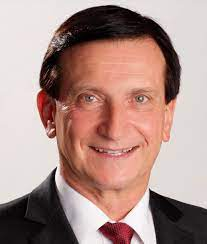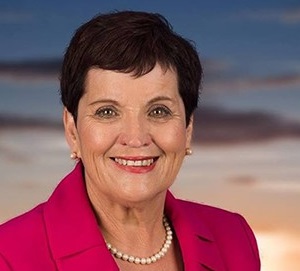NSW Local Government Minister Ron Hoenig has defended the proposal to prevent councillors from holding private briefing sessions saying closed door meetings are open to corruption.

Speaking to Government News, Hoenig said: “Private councillor briefing sessions have been repeatedly highlighted by ICAC as a corruption risk.”
Hoenig was responding to the local government peak body’s resistance to a briefing ban. LGNSW president Darriea Turley said private briefing sessions provided opportunities for councillors to ask questions of staff which may be too sensitive to ask or respond to in public.
In reply, Hoenig told GN: “I understand some councils have raised concerns about needing to deal with confidential or legal matters privately. The legislation already provides exceptions for these matters to be dealt with in closed meetings and I am not proposing any changes to this.”
He added: “What I want to see is when councillors are being briefed on issues that impact the community, this is happening in an open, legally constituted committee meeting in the presence of the press and the public – not behind closed doors. Private briefing sessions have eroded transparency in local government and limited the opportunity for public scrutiny over council decision making.”

Arguing against the ban, LGNSW said the state government, opposition and crossbench are briefed on draft legislation before it’s tabled in parliament, and ministers receive briefings from staff and departmental officers to help prepare draft bills and motions before they’re debated.
“These briefings lead to better informed MPs and more informed decision making once a matter comes to the public forum in parliament,” said Turley. “It should be no different for elected representatives on local councils.”
The briefing ban is one of various amendments contained in a consultation draft of a new code of meeting practice currently open for public comment.
“The changes aim to simplify the code and ensure councillors are making decisions in the full view of the communities they are elected to represent,” reads a statement from the Office of Local Government NSW.
As well as the briefing ban, other key changes include:
- closed meetings notes to be made public after they cease to be confidential
- councils to give reasons when making decisions on planning matters that depart from staff recommendations
- expanding the powers of the mayor to expel councillors from meetings for acts of disorder
- requiring councillors to stand when the mayor enters and when addressing the meeting
- de-politicising the role of the general manager by removing the requirement for them to prepare reports on councillors’ notices of motion.
“The current code has become unwieldly and is prone to drawing the general manager into political disputes which should be left to elected councillors to resolve,” said Hoenig. “These changes are part of the government’s commitment to restoring public trust in local government which has been eroded by years of neglect and a cultural shift towards secrecy over public service.”
“Decisions are increasingly being made behind closed doors.”
Important decisions should be made in council meetings, not in the shadows, said Hoenig. “It concerns me that these decisions are increasingly being made behind closed doors in private briefings, locking out the community and protecting councils from public scrutiny.”
As a former mayor, Hoenig said he wanted to see all councils conducting their business in “an open and public forum, where communities can engage with their council on issues that directly affect them”.
Changes to the meeting code were flagged in a discussion paper outlining the government’s proposed reforms to the councillor code of conduct system.
Submissions will be accepted until 28 February 2025.





The recommendation by the Minister for Local Government that councillor briefing meetings should be open to the public through personal attendance or through internet access should be supported and adopted.
Local Government provides a unique opportunity for direct communication between councillors and their constituents. Community members who are aware of the nuances associated with proposed actions can provide valuable input when speaking with their councillor.
Councils that recommend retention of the current system to protect confidentiality should be aware of the governance rules that require a meeting to be closed to the public when a matter is deemed to be confidential.